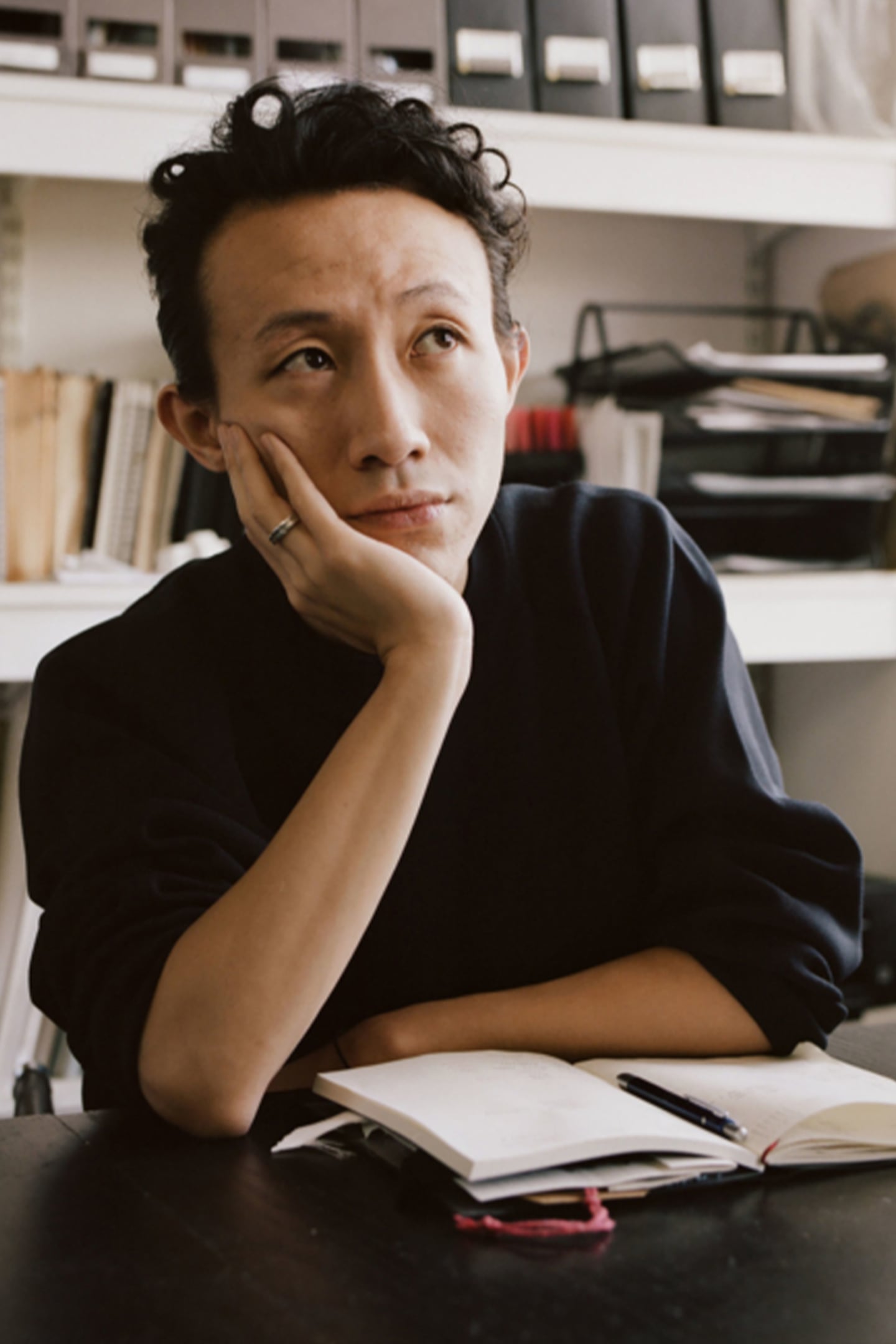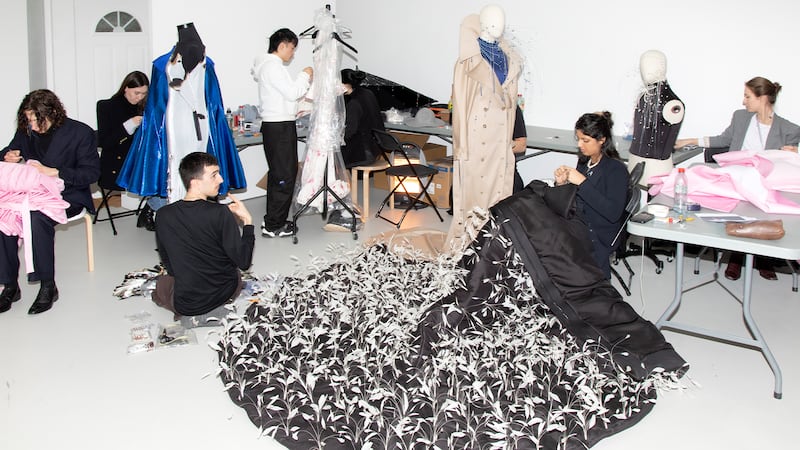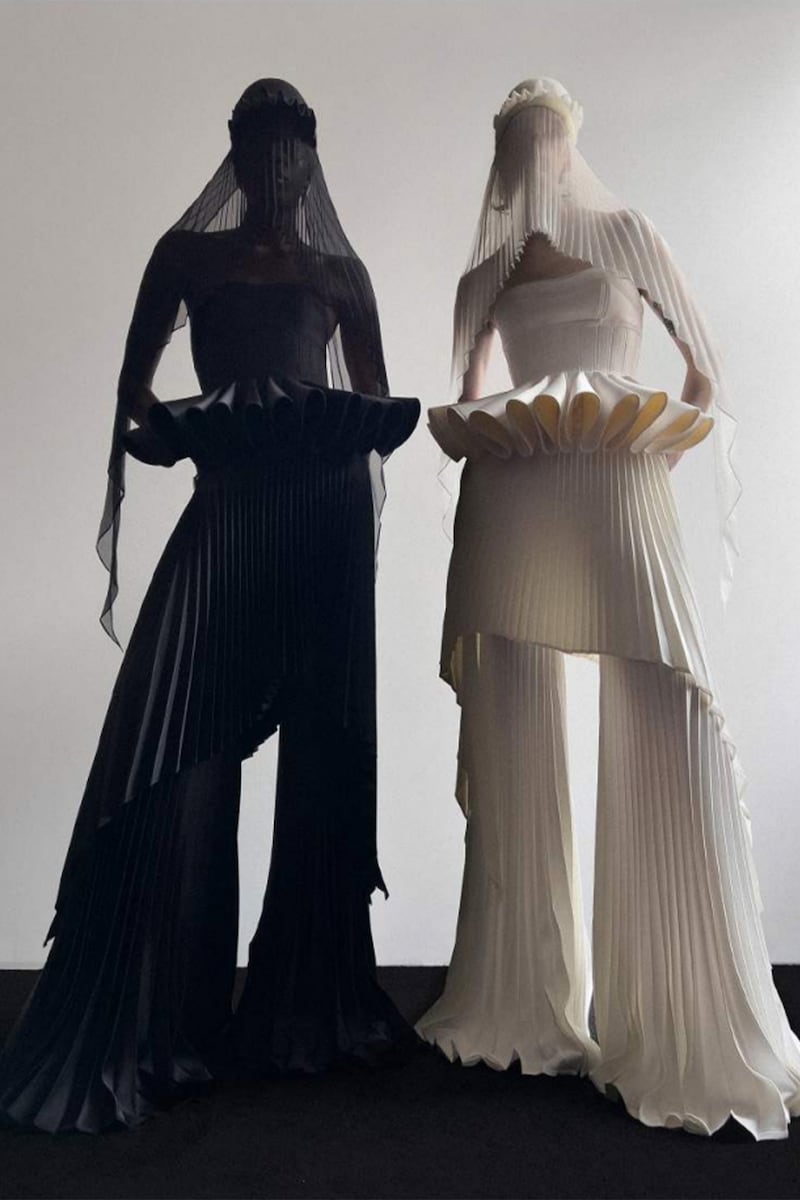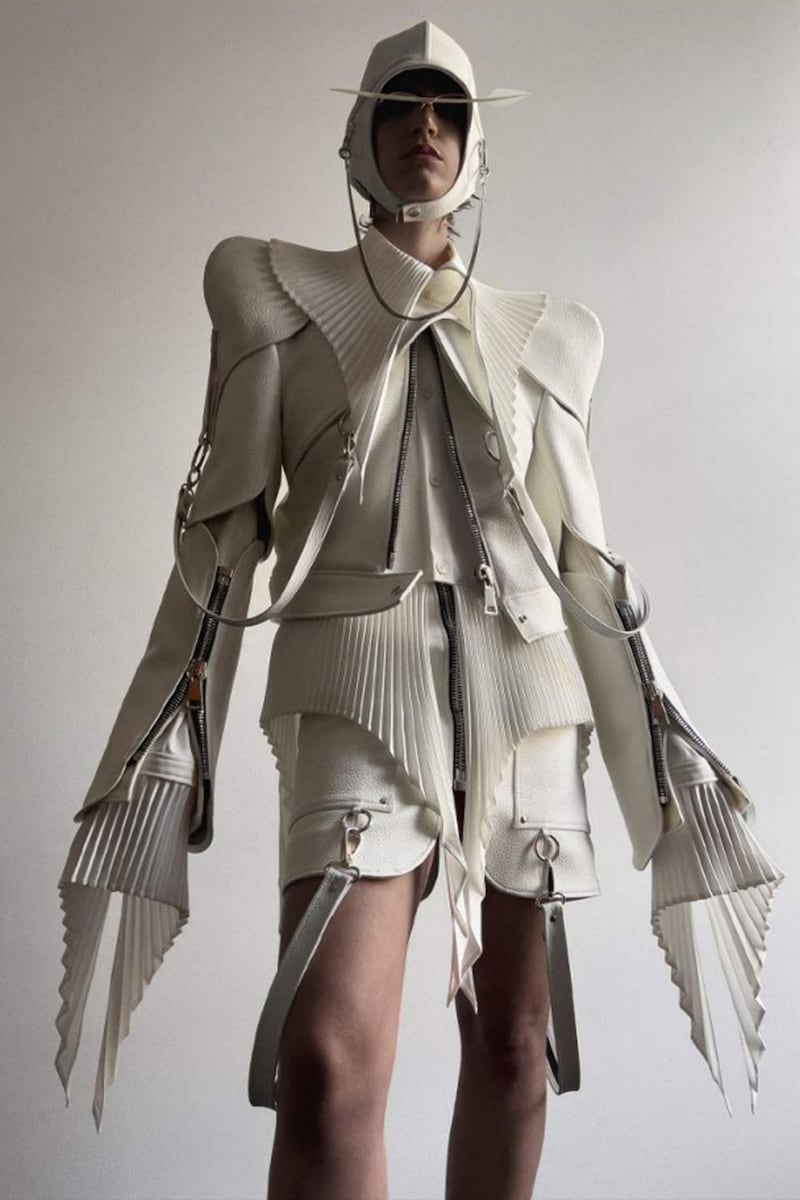
The Business of Fashion
Agenda-setting intelligence, analysis and advice for the global fashion community.

Agenda-setting intelligence, analysis and advice for the global fashion community.

A week ago, Robert Wun’s studio in the Dalston area of East London was buzzing with activity, as the designer prepared to stage a show for the first time ever — at Paris haute couture week, no less. Eight years after the launch of his namesake label, Wun had been invited to close the week as a guest of the Fédération de la Haute Couture et de la Mode. But as finishing touches were being put on a dramatic black quilted down cape and a gold lamé dress with panels of ruffles, Wun still couldn’t quite believe it was happening.
Chanel’s fashion president Bruno Pavlovsky had agreed to sponsor Wun’s application while mentoring the designer after his ANDAM Prix Spécial win last year. “That’s when reality really started to hit,” says Wun, “but I was still saying to my team: ‘It might not happen; the other members might not want it.’ [The Fédération] had more confidence in me than I did.”

It’s taken time for the Hong Kong-born designer to find his groove after working for years on the fringes of mainstream fashion, weighed down by imposter syndrome and showing his collections in wholesale showrooms with little to no fanfare.
“I started my brand crafting pieces by hand in my bedroom in Brixton,” recalls Wun. “There was no business strategy. It took years to see how I could fit in and where I wanted to be.”
ADVERTISEMENT
Wun wasn’t selected for the graduate press show at London College of Fashion, where he studied, nor was he part of London’s NewGen or Fashion East young designer support schemes. “I was never part of that gang,” he says.
It was the pressures of the pandemic and the death of his grandmother that spurred Wun to adopt a do-or-die attitude, resulting in a collection called “Armour,” released in April 2021 via a simple, iPhone-lensed lookbook. With clear nods to the work of Wun’s designer hero, Alexander McQueen, there was a palpable sense of grief in the line’s knife-sharp pleats, neoprene-bonded lace-up corsets and straps.

The collection gained immediate traction on Instagram, prompting Wun to pivot his business away from wholesale, making custom pieces for private clients at £15,000 to £200,000 each. His work has since been worn by Solange, Celine Dion, Priyanka Chopra and Cardi B, helping him to build a healthy client roster, mainly in the US and the Middle East.
“These customers will have their measurements already from other brands and we’ll work with their stylists or assistants on getting the fit right. They’re quite understanding of newcomers like myself or Sohee [Park] and they’re excited to get something more unusual from new couturiers.” (South Korea-born, London-based Sohee Park’s Miss Sohee label made its own Paris debut, albeit off-schedule, earlier this week).
Wun is vocal about not wanting his Chinese heritage to change the way his work is judged. “They want us in a group to tick a box,” he says. “Whenever a ‘POC’ designer is talked about, it’s always with this tale of struggle. You would never ask Christopher Kane about being Scottish all the time. My heritage is personal and my own.”

His own vulnerability is nonetheless the central theme of the collection that he will show at the Hôtel d’Évreux on Place Vendôme tonight. Dresses will come with what looks like cigarette burns and red wine stains. Shoes with perspex wedges come with broken heels hanging on the back. A pearl necklace is smashed and scattered all over a gown. There’s no couture bride; instead a hooded black quilted cape dotted with feathers will close the show.
“Fear itself is the inspiration,” says Wun. “It’s like a timestamp of me understanding and remembering the process of doing my first show and overcoming my insecurity.”
Wun is intimately aware of his label’s limitations. “I’m never going to be a £200 million business or see loads of people on the street wearing Robert Wun. I don’t design that way,” he says. “What we do here is really personal. Being grateful is also important. I’ve learnt that just as things come to you quickly, it could all go away in an instant.”
From where aspirational customers are spending to Kering’s challenges and Richemont’s fashion revival, BoF’s editor-in-chief shares key takeaways from conversations with industry insiders in London, Milan and Paris.
BoF editor-at-large Tim Blanks and Imran Amed, BoF founder and editor-in-chief, look back at the key moments of fashion month, from Seán McGirr’s debut at Alexander McQueen to Chemena Kamali’s first collection for Chloé.
Anthony Vaccarello staged a surprise show to launch a collection of gorgeously languid men’s tailoring, writes Tim Blanks.
BoF’s editors pick the best shows of the Autumn/Winter 2024 season.